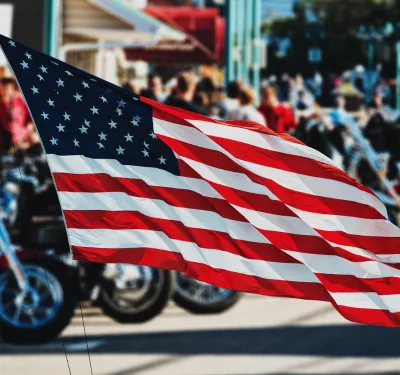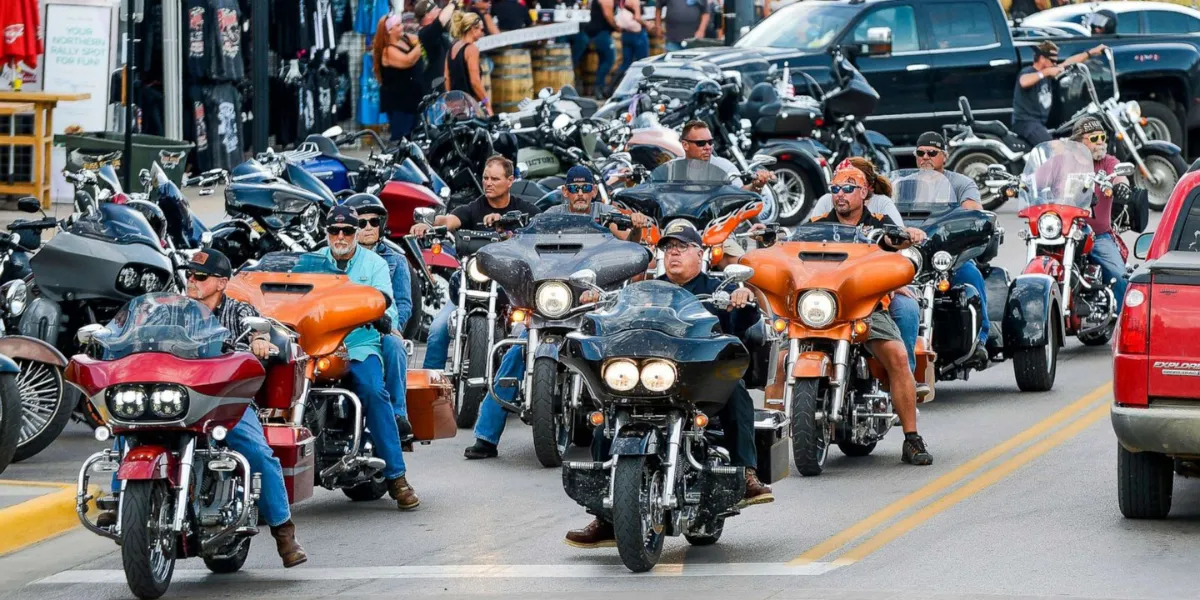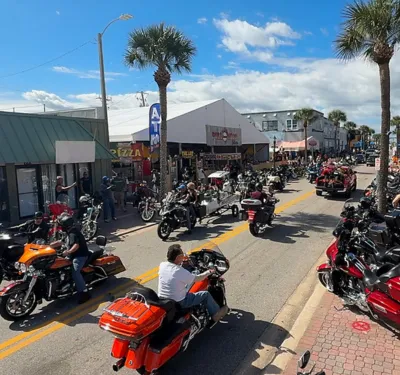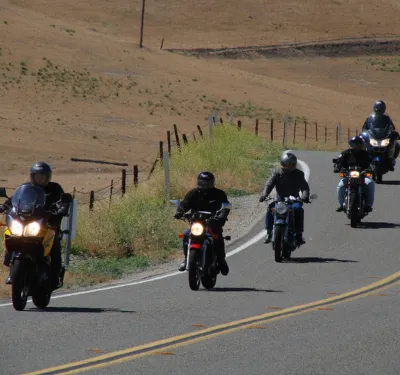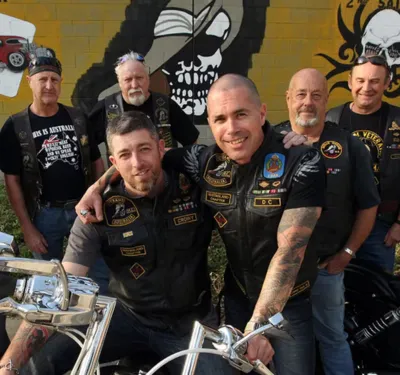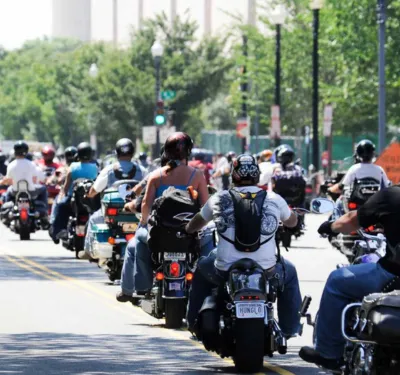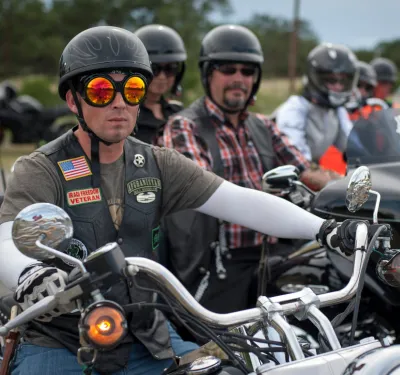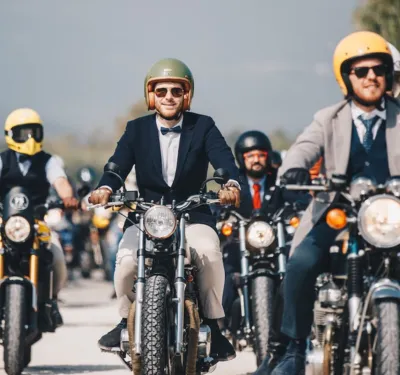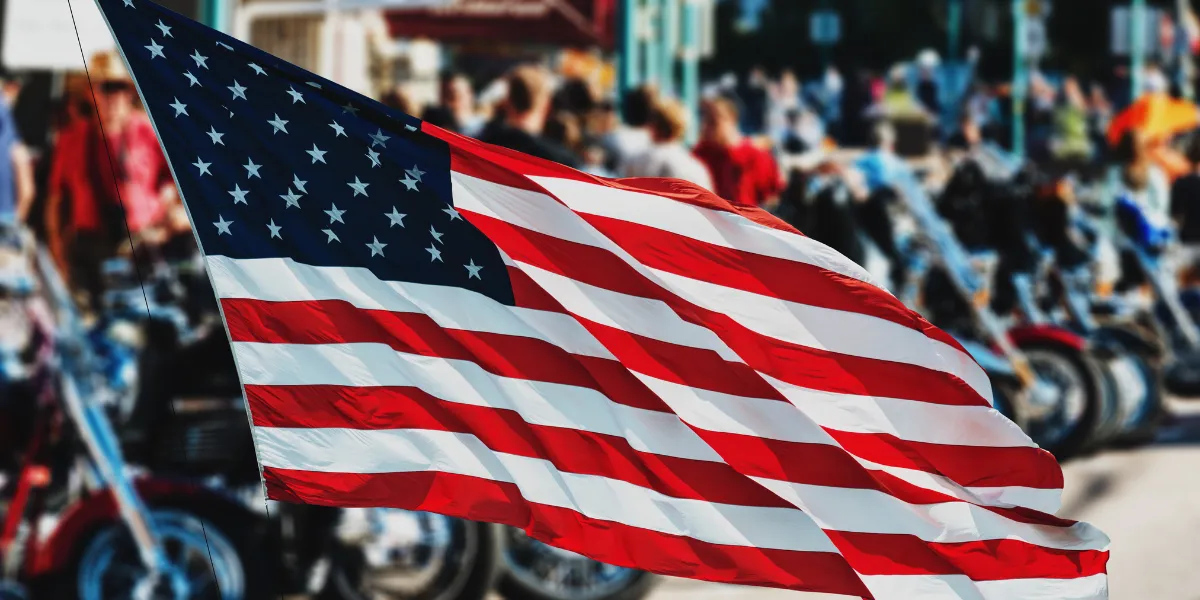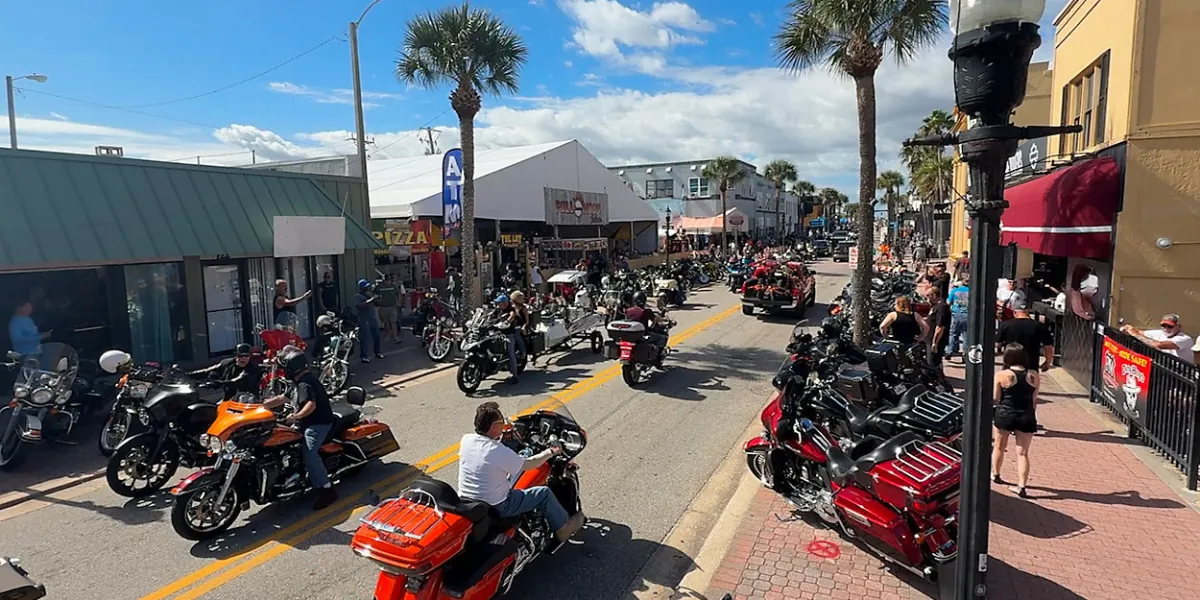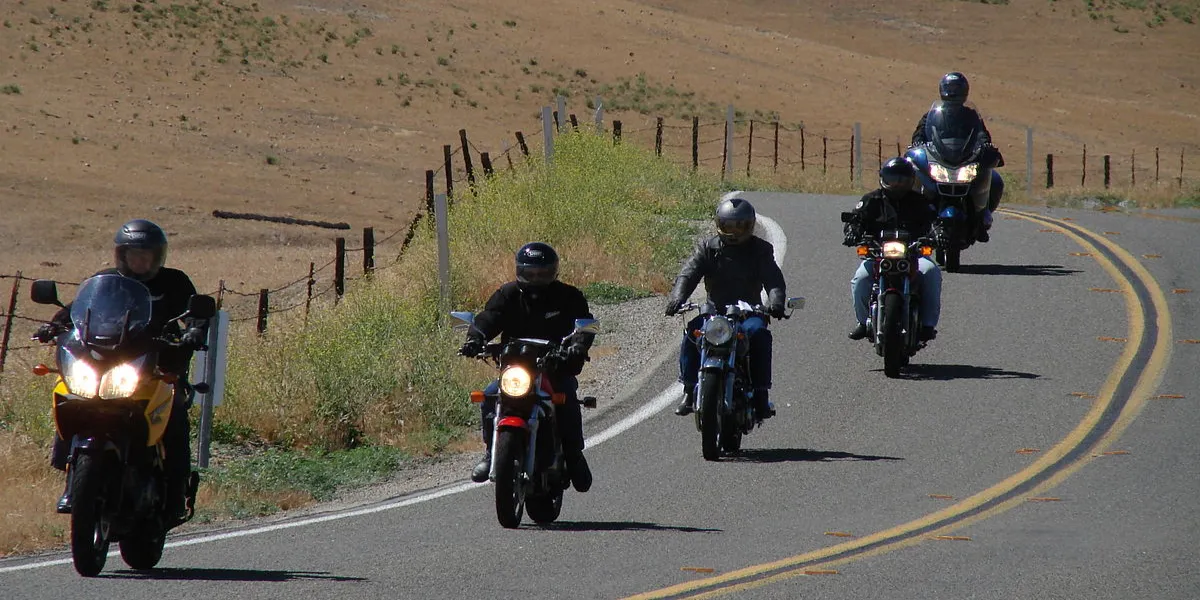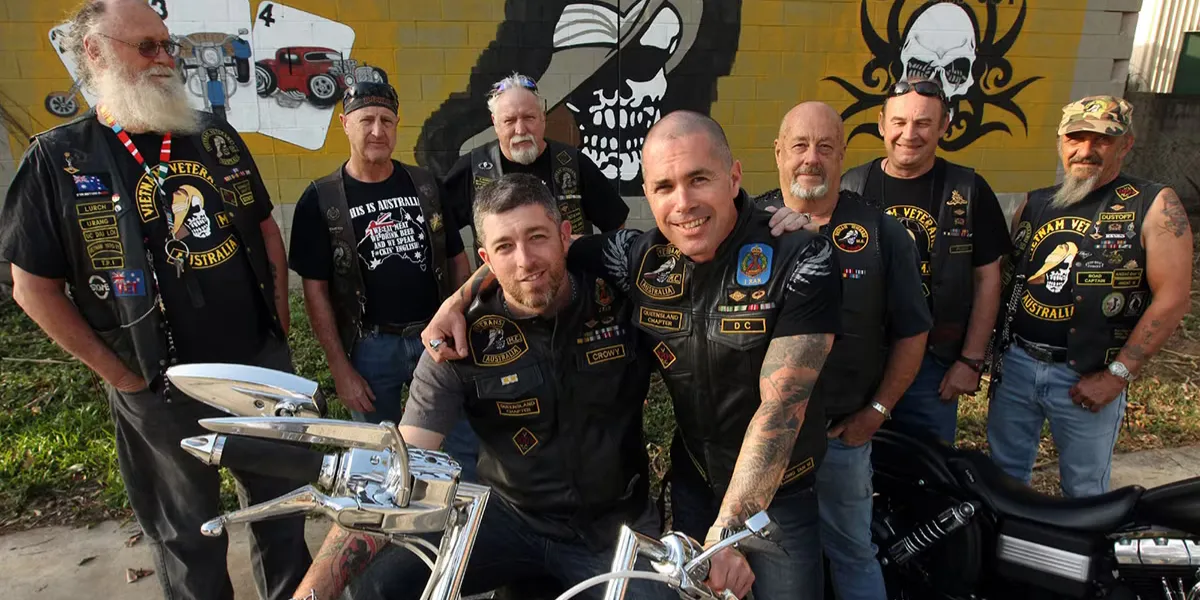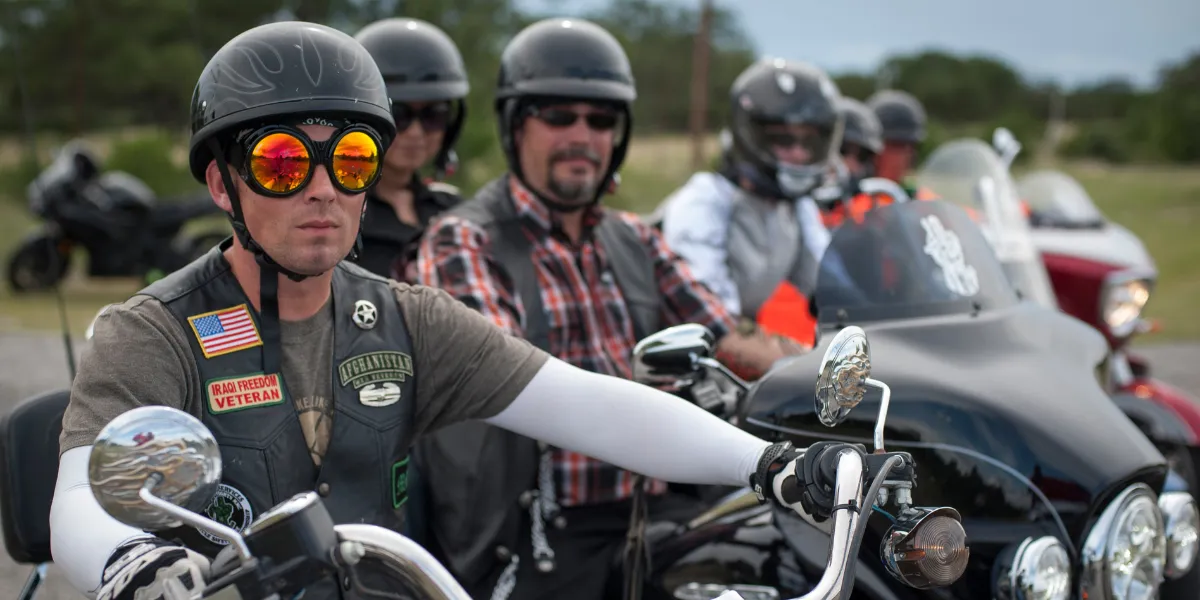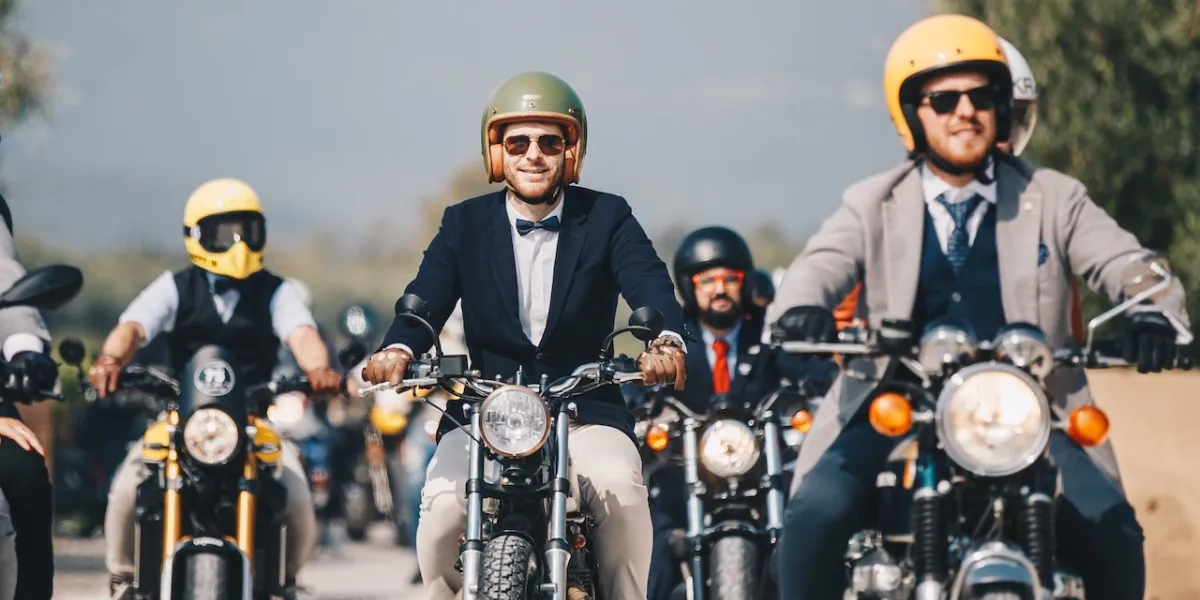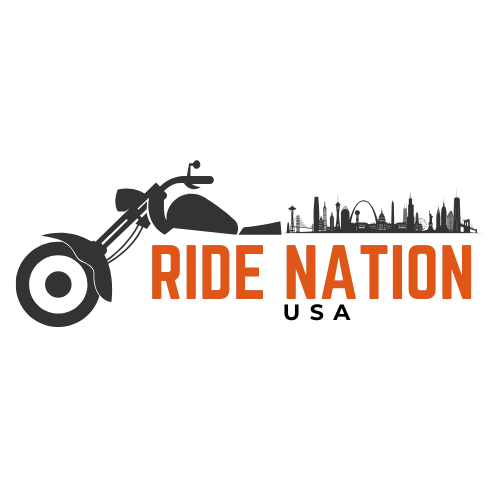
Been in an accident? Call now
Motorcycle Safety Tips & Rider Brotherhood - Protecting American Riders
Contact Us | Ride Nation USA
ACCIDENT HELP CENTER
You shouldn’t face insurance companies or legal battles alone. We’ll connect you with a motorcycle attorney who knows the road — and how to fight for your rights.
Fill out the quick form below or call our 24/7 rider helpline for immediate help.
RIDE NATION USA
SAFETY & BROTHERHOOD STORIES
STORY 1: The Time Someone's Back Had Mine (And Why Brotherhood Isn't Just Talk)
Hey, folks — Gene here.
Summer of 2019. Riding through North Carolina. Beautiful day. Perfect weather. One of those rides where everything feels right and you're thinking, "This is exactly why I ride."
Then my clutch cable snapped. Middle of nowhere. No cell service. No shops within 30 miles. Just me, a broken bike, and a problem.
I'm sitting there on the side of the road, sweating, trying to figure out if I can limp this thing anywhere, when two riders pull up. Never met them. Don't know their names. Don't even remember what they looked like,honestly
But they stopped.
One of them had tools. The other had duct tape and zip ties — because apparently he'd MacGyvered his way through enough breakdowns to know what matters. Together, we rigged a temporary fix. Wasn't pretty. Wouldn't last forever. But it got me to the next town.
They followed me the whole way. Didn't have to. Weren't going that direction. But they followed anyway, making sure I made it. Then they waved, wished me luck, and rode off.
I never got their names. Never saw them again. But I think about them sometimes. About how they didn't hesitate. Didn't ask questions. Just stopped and helped because that's what riders do.
That's brotherhood. Not a word. Not a concept. An action. A choice. A commitment to taking care of each other out there.
The Lesson: We look out for each other on the road. Period. No exceptions. If you see a rider down or struggling, you stop. You help. That's the code. That's what makes this community different from everything else.
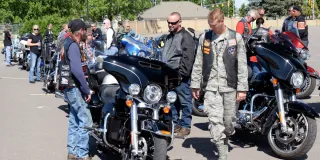
STORY 2: Why I Always Wave (And Why You Should Too)
People who don't ride think the wave is dumb. "Why do you wave at strangers?" they ask. "You don't know them."
That's the point. I don't need to know them. They ride. I ride. That's enough.
The wave isn't about knowing each other. It's about acknowledging each other. About recognizing that we're part of something. About saying, "I see you. I respect what you're doing. We're in this together."
It's a small thing. Two fingers off the grip. Half a second of attention. But it matters.
I've had riders wave at me when I was having a terrible day. When I was stressed about work or family or money or whatever. And that simple wave — that acknowledgment from a stranger — made me feel less alone. Made me remember I'm part of a community. Made the day a little better.
I've waved at riders who looked like they needed it. New riders, uncertain and nervous. Older riders, weathered and tired. Solo riders, looking isolated. And I've seen them perk up. Sit straighter. Ride with a little more confidence.
The wave matters.
Now, I get it. Sometimes you can't wave. Hands full. Bad road. Too much traffic. That's fine. But when you can? Wave. Two fingers. Quick acknowledgment. Connection.
It costs nothing. It means everything.
The Lesson: The wave isn't just politeness. It's community. It's recognition. It's saying "we're in this together" without words. Don't skip it. Don't ignore it. Wave.
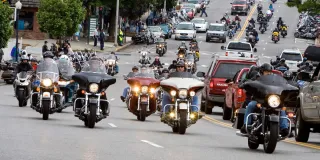
STORY 3: The Night Ride That Taught Me About Trust
Late 2021. Group ride. Night ride through the backroads. About fifteen of us. Mix of experienced riders and newer ones.
I was sweep — riding last, making sure nobody got left behind. Good group. Everyone following formation. Everything going smooth.
Then one of the newer riders — kid maybe 25, had his license less than a year — started falling back. Not dramatically. Just gradually. Losing ground. Getting farther behind.
I caught up to him. Rode alongside. He looked stressed. Gripping the bars too tight. Not comfortable. The darkness was getting to him. The speed was pushing his limit.
I slowed down. Gave him some space. Let him know I was there. Didn't say anything — couldn't, mid-ride. Just stayed with him. Visible in his mirror. Present. Supportive.
He relaxed. Loosened his grip. Found his rhythm. We caught back up to the group. Finished the ride. Nobody else even knew there was an issue.
After the ride, he came up to me. Said thanks. Said he'd been about to pull over and bail because he was panicking. But seeing me there, knowing someone had his back, let him push through.
That's what brotherhood looks like. Not dramatic. Not heroic. Just being present for someone who needs it. Just staying with them when they're struggling. Just letting them know they're not alone.
The Lesson: New riders need experienced riders. That's how this works. That's how we build community and keep people safe. If you see someone struggling, don't ignore it. Don't judge them. Help them. Stay with them. Be what you needed when you were learning.
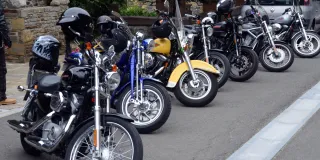
STORY 4: Why Gear Isn't Optional (The Story Nobody Wants to Hear)
Three years ago, Tampa. Morning commute. I'm wearing full gear — always do. $2,000 worth of protection. Helmet, jacket, pants, gloves, boots. The works.
Guy in a pickup runs a red light. Hits me. I go down. Bike totals. I slide about forty feet on asphalt at 45 mph.
And I walk away. Sore. Angry. Bruised everywhere. But nothing broken. Nothing permanent. Home that night.
The gear saved me. All of it. Helmet hit first, saved my skull. Jacket armor absorbed the shoulder impact. Pants kept me from losing skin. Gloves protected my hands. Boots saved my ankles.
Everything was destroyed. Completely shredded. Every piece went in the trash. But I went home. That's what $2,000 bought me.
Meanwhile, every week I see riders in t-shirts, shorts, sneakers. Some of them on $30,000 bikes. Spent more on chrome than protection. More on exhaust than gear. More on making the bike look good than staying alive.
That's backwards. Dangerously backwards. The bike gets you into accidents. The gear gets you out of them.
I'm not here to judge. I'm here to tell you the truth: you're going to fall eventually. Everyone does. When you do, gear is what determines whether you walk away or get carried away.
Your call. But make it an informed call. Know what you're risking. Know what protection costs. And know that the people who love you would rather you spend money on gear than flowers.
The Lesson: Gear isn't optional. It's essential. Budget for it. Invest in it. Wear it every time. No exceptions. Your life is worth more than comfort or style or saving money. ATGATT isn't a suggestion. It's survival.
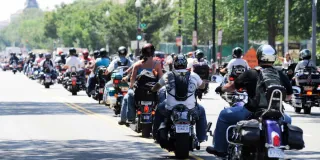
STORY 5: The Rider Who Didn't Make It (And What We Owe Him)
Late 2017. Friend of mine. Good rider. Experienced. Careful. Smart. Everything you'd want in a riding buddy.
Hit by a drunk driver. Sunday afternoon. Wasn't his fault. Wasn't anything he could've prevented. Just wrong place, wrong time, wrong person driving.
He didn't make it. I went to the memorial ride. Hundreds of riders showed up. People he knew. People he'd ridden with. People he'd helped. People whose lives he'd touched.
His family was there. His wife. His kids. They talked about how much riding meant to him. How it was part of who he was. How he'd always been safe, always been careful, always tried to do everything right.
And it wasn't enough. Because you can do everything right and still have it go wrong. That's the reality of riding. The risk is always there. The danger is always present. You can minimize it, but you can't eliminate it.
Since then, I've tried to live up to what he stood for. Riding safe. Riding smart. Helping other riders. Being part of the community he helped build.
Because that's what we owe the riders we've lost. We owe them the commitment to ride better. To be safer. To take care of each other. To build the community they believed in.
They rode because they loved it. We ride because they did. And we ride safely because we owe them that respect.
The Lesson: Every rider we lose reminds us why safety matters. Why brotherhood matters. Why looking out for each other isn't optional. Ride smart. Ride safe. Honor the ones we've lost by not joining them.
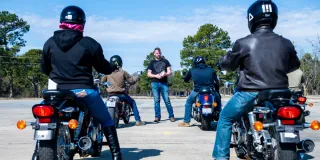
STORY 6: What "Brotherhood" Actually Means (From Someone Who's Seen It)
Brotherhood is an overused word in motorcycle culture. Everyone says it. Nobody defines it. So let me tell you what it actually means, from someone who's lived it for 40+ years.
Brotherhood isn't about riding the same brand. It's not about patches or clubs or affiliations. It's not about what you ride or how you ride or who you ride with.
Brotherhood is about actions.
It's stopping for a rider on the side of the road even when you're in a hurry.
It's helping someone fix their bike even though you've never met them.
It's warning other riders about hazards, cops, problems ahead.
It's looking out for newer riders who don't know what they don't know.
It's giving good advice without judgment when someone asks.
It's sharing your knowledge, your experience, your mistakes.
It's waving at every rider you pass because we're all in this together.
It's not leaving anyone behind on group rides.
It's checking on someone who dropped their bike, even if they say they're fine.
It's respecting every rider regardless of age, gender, bike choice, skill level.
It's creating a community where everyone feels welcome and supported.
That's brotherhood. Not a word. Not a slogan. A commitment to action. To looking out for each other. To being better riders and better people because of the community we've built.
The Lesson: Brotherhood is earned through actions, not claimed through words. Be the rider who stops. Who helps. Who supports. Who builds community instead of tearing it down. That's what makes this culture special.
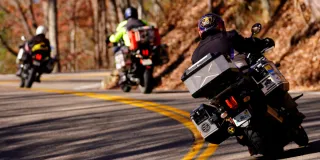
STORY 7: Safety Isn't About Rules, It's About Coming Home
I've been riding for over 40 years. Forty years of roads, weather, traffic, mistakes, lessons, and miles. And I'm still here. Still riding. Still intact.
Not because I'm lucky. Because I'm careful. People talk about safety like it's a set of rules. Wear your gear. Take the course. Ride defensively. Don't drink and ride. All true. All important.
But safety isn't about rules. It's about a mindset. It's about making decisions every single ride that prioritize coming home over everything else.
Coming home over being on time.
Coming home over proving something.
Coming home over taking unnecessary risks.
Coming home over ego and pride and looking cool.
Every ride, I ask myself one question: "What decision keeps me safest?" Then I make that decision. Even when it's not the fun decision. Even when it's not the cool decision. Even when it feels like overkill.
Because I've been to too many memorials. I've lost too many friends. I've seen what happens when riders prioritize other things over safety.
And I'm determined not to be that statistic. Not to be that story. Not to be the rider who "should've known better."
So I check my bike before every ride. I wear full gear every time. I ride defensively. I don't push beyond my limits. I avoid bad weather. I don't ride angry or tired or distracted.
Not because I'm scared. Because I'm smart. Because I know the difference between bravery and stupidity. Because I want to keep riding for another 20 years.
The Lesson: Safety isn't restrictive. It's liberating. It's what lets you keep riding instead of becoming a memory. Make safety decisions every ride. Check the bike. Wear the gear. Ride defensively. Come home. That's what matters.
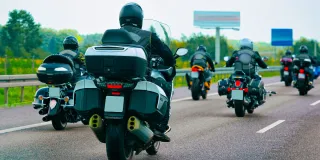
STORY 8: The Thing About Defensive Riding Nobody Tells You
Defensive riding saved my life. Multiple times. More times than I can count. And the weird thing? Most of those times, nothing actually happened.
That's the thing about defensive riding. It prevents accidents before they occur. It keeps you out of situations where accidents could happen. So you never know what you avoided.
You see a car drifting in their lane? You create space. They never actually hit you, but they might have.
You notice someone on their phone? You move away. They never actually swerve into you, but they could have.
You see a green light but the car ahead isn't moving? You slow down. Turns out their light was red and they're running it, but you already avoided them.
Most of the time, defensive riding feels like overcaution. Like you're being paranoid. Like you're seeing dangers that aren't there.
Until the day you see the danger that is there. And because you've been riding defensively all along, you've got the space, the time, the positioning to avoid it.
I've had cars pull out in front of me. But I had space because I was riding defensively.
I've had drivers merge into my lane. But I was already moving away because I saw them not checking.
I've had lights change and people run them. But I was covering my brakes and watching because I always do.Defensive riding doesn't feel impressive. It doesn't make good stories. It doesn't prove anything. It just keeps you alive. And alive is better than impressive.
The Lesson: Ride like everyone's trying to kill you. Because some of them are — through negligence, distraction, or incompetence. Create space. Watch everything. Trust nothing. Expect the unexpected. That's what keeps you riding another day.
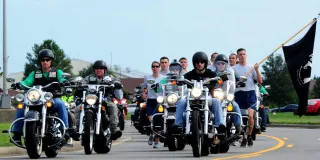
These stories are from real riders, real experiences, real lessons learned on the road. We share them because brotherhood means learning from each other. It means protecting each other. It means building a community where everyone comes home.
Share your own stories of brotherhood, close calls, lessons learned, and times another rider had your back. We're stronger together. We're safer together. And together, we build the community that keeps all of us rolling.
Been in an accident? Connect with trusted motorcycle injury attorneys who understand riders and fight for riders' rights:
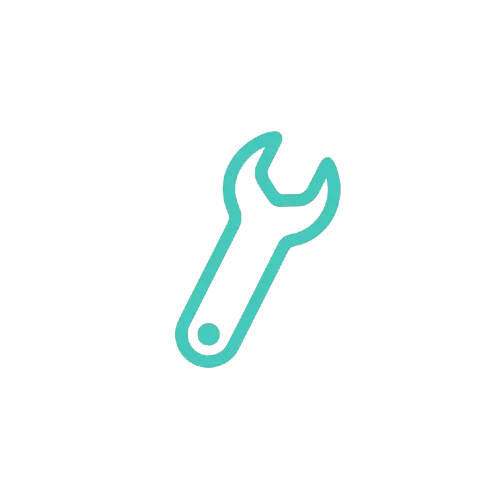
140+
Insider Industry News
Stay ahead of the curve with the latest trends.
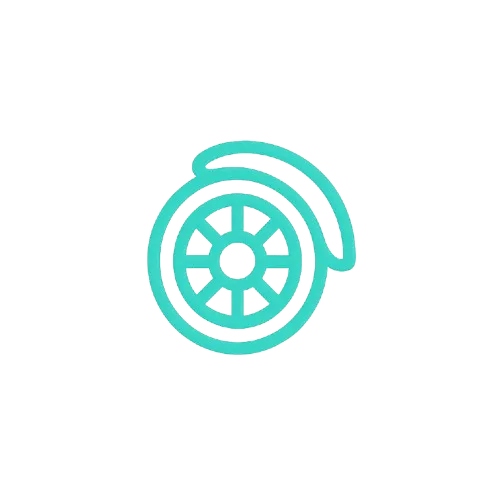
50K+
Rider Stories Series
Be inspired by real-life tales of adventure

78
Maintenance Tips
Keep your bike in top condition.
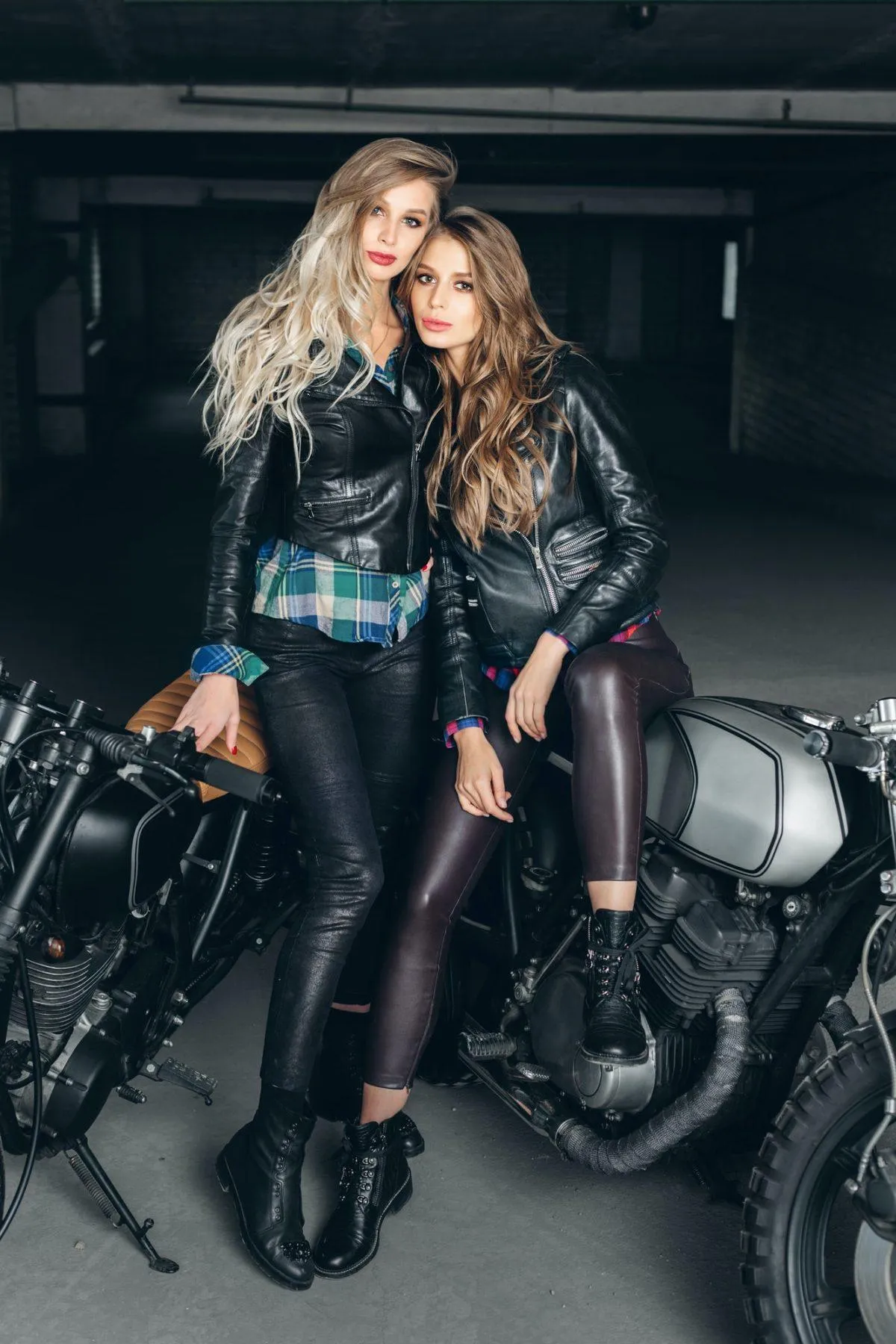
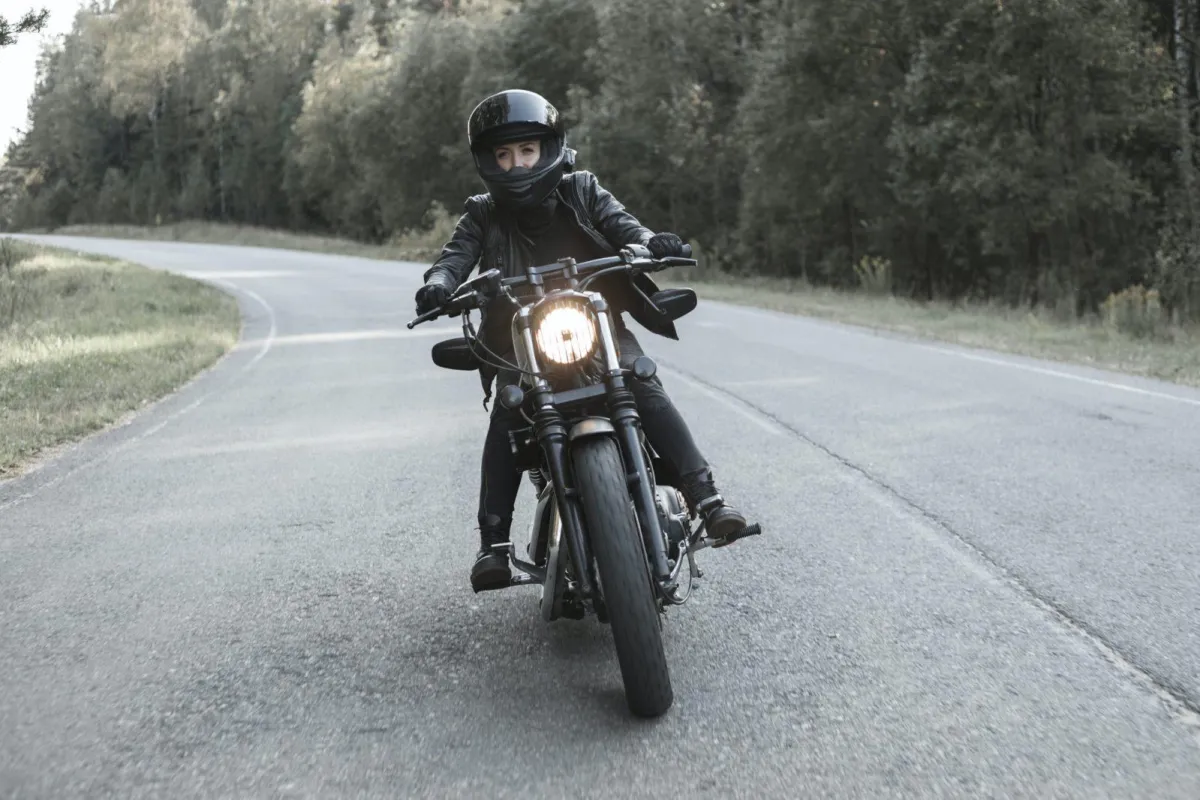
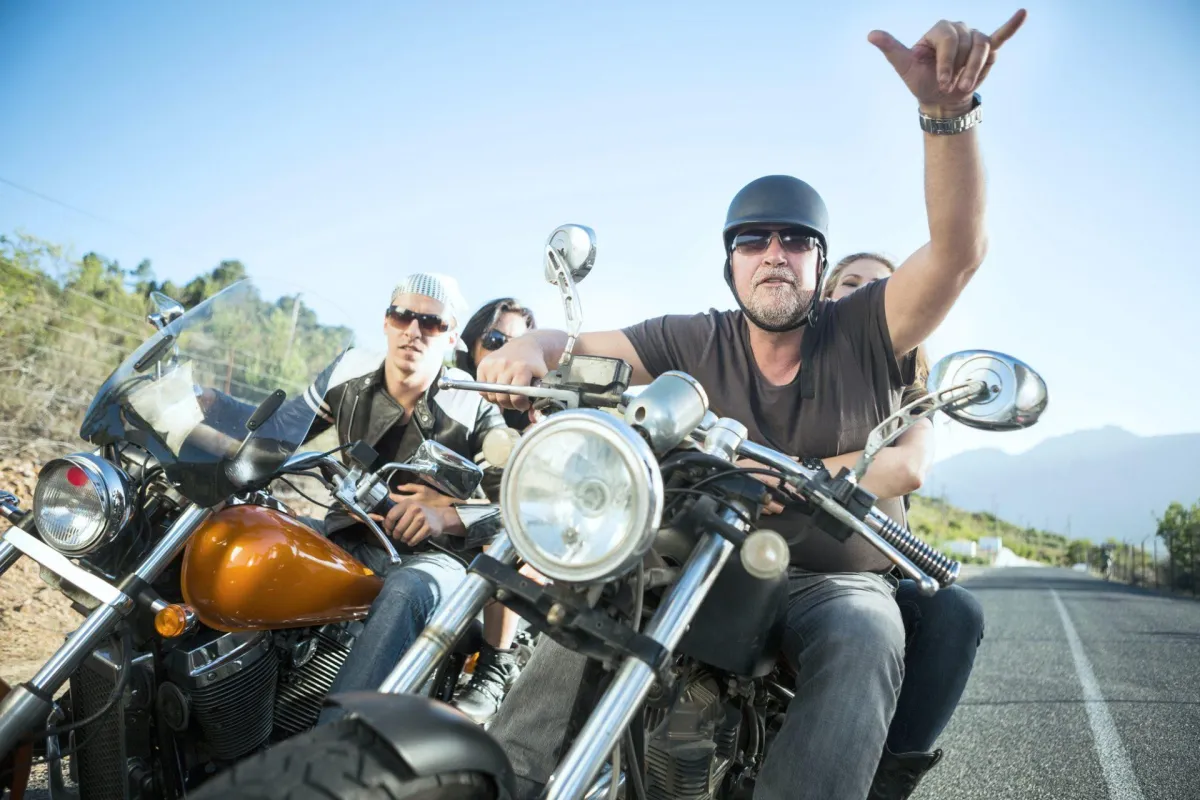
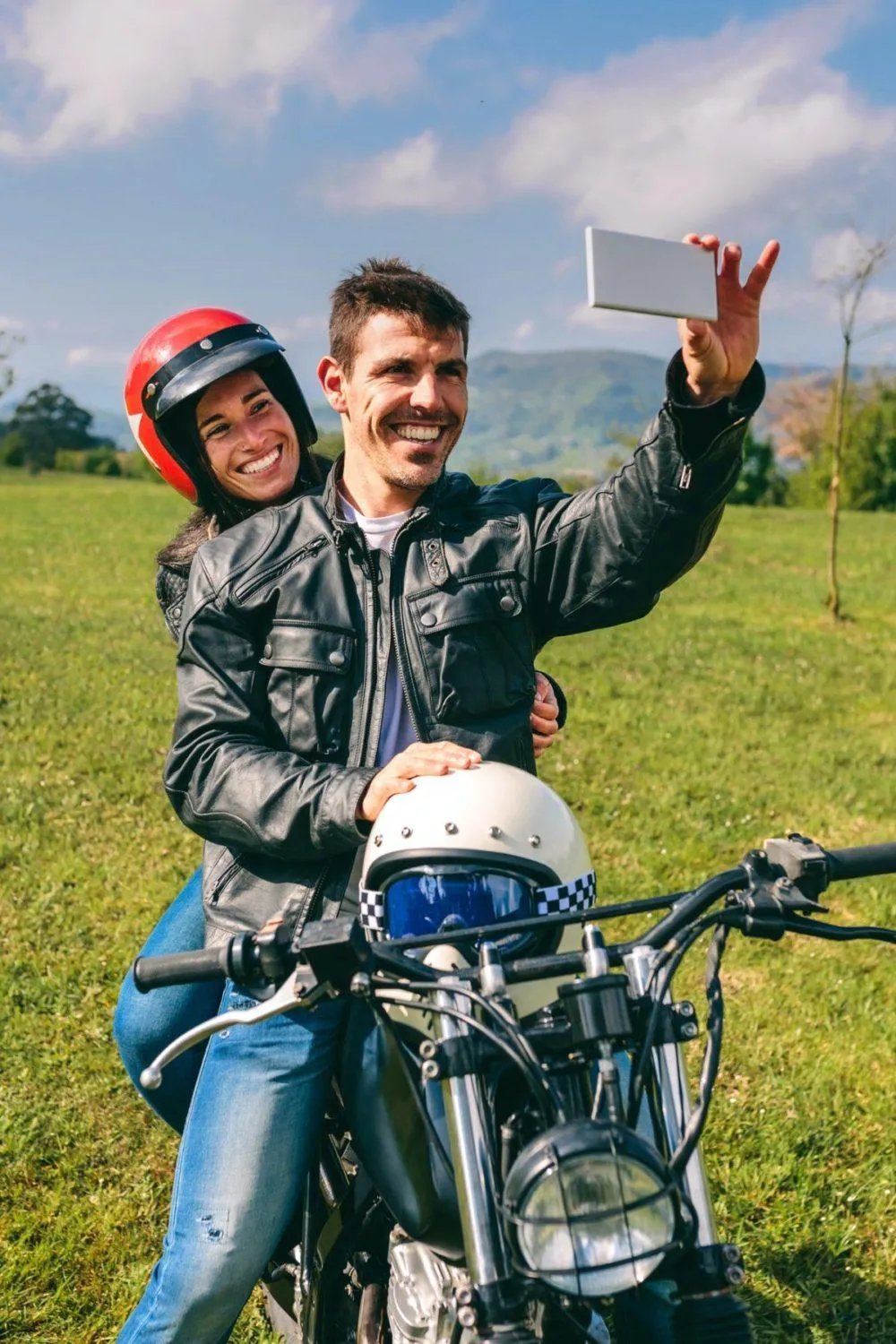
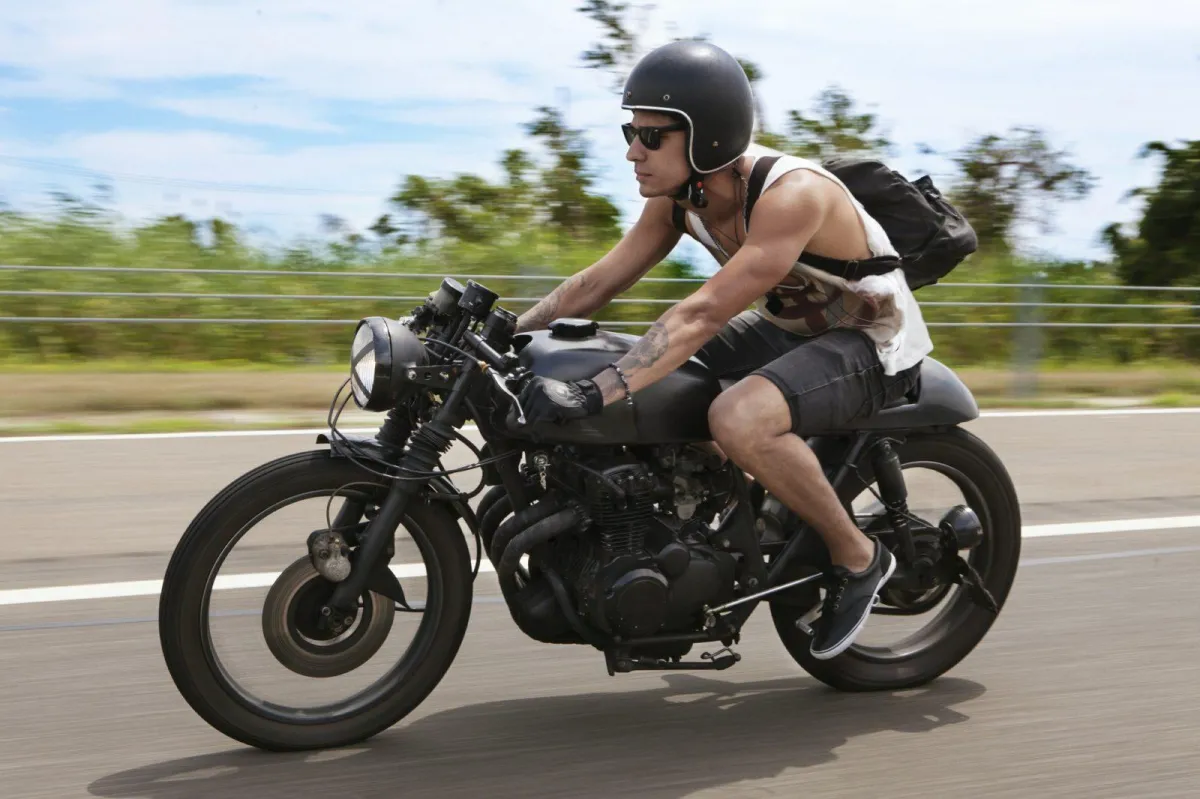
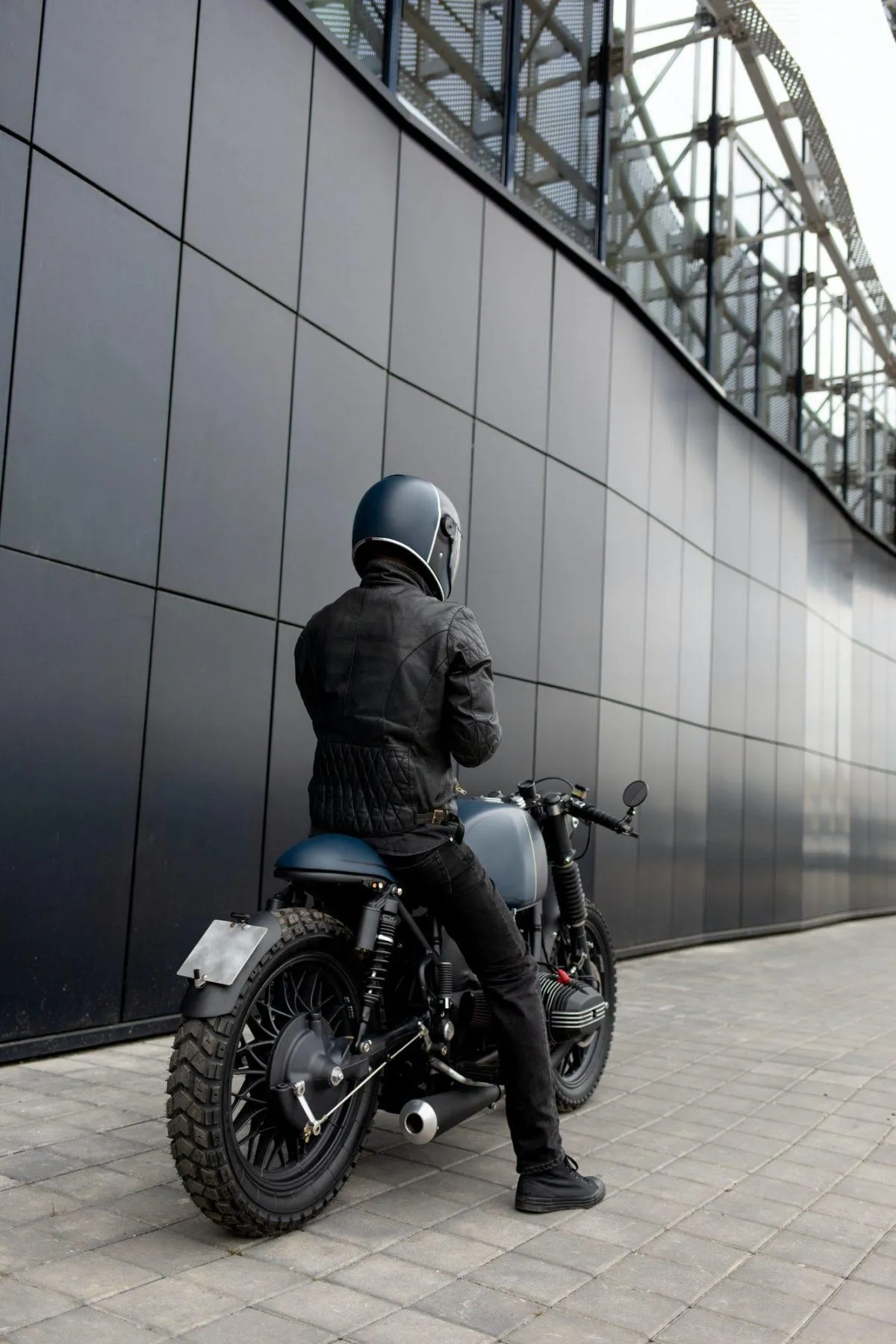
Ride Nation USA
Legal & Privacy Disclaimer
Ride Nation USA is a marketing and referral service, not a law firm and does not provide legal advice. By submitting your information through this site, you agree that it may be shared with one qualified attorney or law firm for the purpose of reviewing your potential case.
Submitting information does not create an attorney-client relationship. Any decision to hire an attorney is solely between you and that attorney. Ride Nation USA does not guarantee results and is not responsible for the actions or outcomes of any attorney or firm.
This website is intended for general informational purposes only and may be considered attorney advertising in some jurisdictions. Past results do not guarantee future outcomes.
We take your privacy seriously. Your information is never sold or shared beyond the referral purpose stated above. Data is stored securely and used only to connect you with an attorney who may assist with your case.
By using this site, you acknowledge that you have read and agree to this disclaimer.
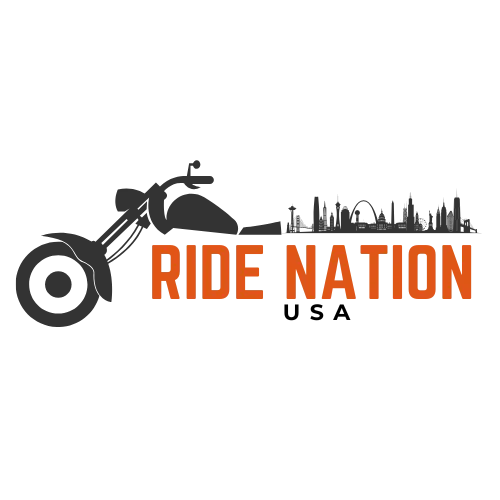
Join a vibrant community, access expert tips, and find great deals on gear. Explore the world of riding with us!
